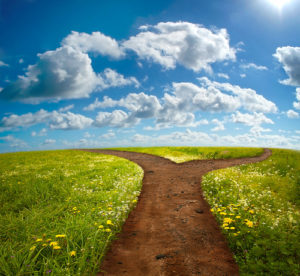The Most Powerful Form of Mindfulness
 Given a choice, how will you live? There are two basic ways in which we can live our lives, maybe not when we are youngsters, but certainly by time we reach our thirties—we have a choice.
Given a choice, how will you live? There are two basic ways in which we can live our lives, maybe not when we are youngsters, but certainly by time we reach our thirties—we have a choice.
Martin Heidegger, the German philosopher, said the choice is to exist in a state of forgetfulness of being or a state of mindfulness of being. Most of us live in a state of forgetfulness of being without ever choosing to do so. Forgetfulness of being doesn’t require us to make a conscious choice; it is natural and happens unconsciously.
It is where I find myself when I spend time on Facebook, engage in idle chatter, drive to work on auto-pilot, worry about what others think of me, and lose myself in unmemorable forms of entertainment. And that is why I do my best to avoid all of the above.
The writer Irvin Yalom explains what Heidegger meant:
When one lives in a state of forgetfulness of being, one lives in the world of things and immerses oneself in the everyday diversions of life: One is ‘leveled down,’ absorbed in ‘idle chatter,’ lost in the ‘they.’ One surrenders oneself to the everyday world, to a concern about the way things are.
Mindfulness off the cushion
But this is not the only way we can live. We can wake up to a state of mindfulness of being. This is not mindfulness limited to the meditation cushion; this is mindfulness off the cushion.
Yalom goes on to explain:
In the state of mindfulness of being, one marvels not about the way things are but that they are. To exist in this mode means to be continually aware of being. In this mode, which is often referred to as the ‘ontological mode’ (from the Greek ontos, meaning ‘existence’), one remains mindful of being, not only mindful of the fragility of being but mindful, too, of one’s responsibility for one’s own being. Since it is only in this ontological mode that one is in touch with one’s self-creation, it is only here that one can grasp the power to change oneself.
I so very much appreciate the sentiment of these words, in particular, “One marvels not about the way things are, but that they are.” This helps me live with the continuous awareness that life is a miracle. All of life—even the times when I struggle, scare or disappoint myself. When I access mindfulness of being I experience gratitude for life, for being alive, and I shift into what I call heart consciousness. In heart consciousness I embody love that is not dependent on another person; love emanates from within me.
None of us are likely to experience mindfulness of being until we are jarred out of our innocence of forgetfulness. One of the most common ways this occurs is when we experience visitations from death. It is when we come to recognize the impermanence of life that we recognize the preciousness of life and fully embrace it—all of it . . . including the challenges and the struggles, the disappointments and hurts, as well as the joy, humor, and beauty.
Accepting anxiety reduces anxiety
Our anxiety about death motivates us to distract ourselves—leading to the forgetfulness of being. The problem with this is that if I live my life in a state of forgetfulness I will very likely experience increasing anxiety as I age. In the back of my mind I ask the question, “Is this all there is to life?” I don’t have a sense of deep fulfillment, precisely because I’ve been trying to minimize my anxiety by distracting myself with ‘idle chatter’ and lost in the ‘they’ (overly concerned about what other people think).
Yalom summarized his writing about Heidegger by saying:
Forgetfulness of being is the everyday mode of existence. Heidegger refers to it as ‘inauthentic’—a mode in which one is unaware of one’s authorship of one’s life and world, in which one “flees,” “falls,” and is tranquilized, in which one avoids choices by being “carried along by the nobody.” When, however, one enters the second mode of being (mindfulness of being), one exists authentically. In this state, one becomes fully self-aware . . . one embraces one’s possibilities and limits; one faces absolute freedom and nothingness—and is anxious in the face of them.
“…and is anxious in the face of them . . . “ This statement may surprise you, but the point isn’t to escape our anxiety, the point is to use our anxiety to keep ourselves awake, mindful, and making the most of our lives.
Our work at Live Conscious is to continue to create and support a community of like-minded people—people who are committed to experiencing the mindfulness of being. In our small dynamic group we find companionship and unity in our sense of purpose and our intention to live consciously. If you are interested in living in a state of mindfulness, join us. Let us know you are out there by writing in our comment section below.
The post The Most Powerful Form of Mindfulness appeared first on Live Conscious.



